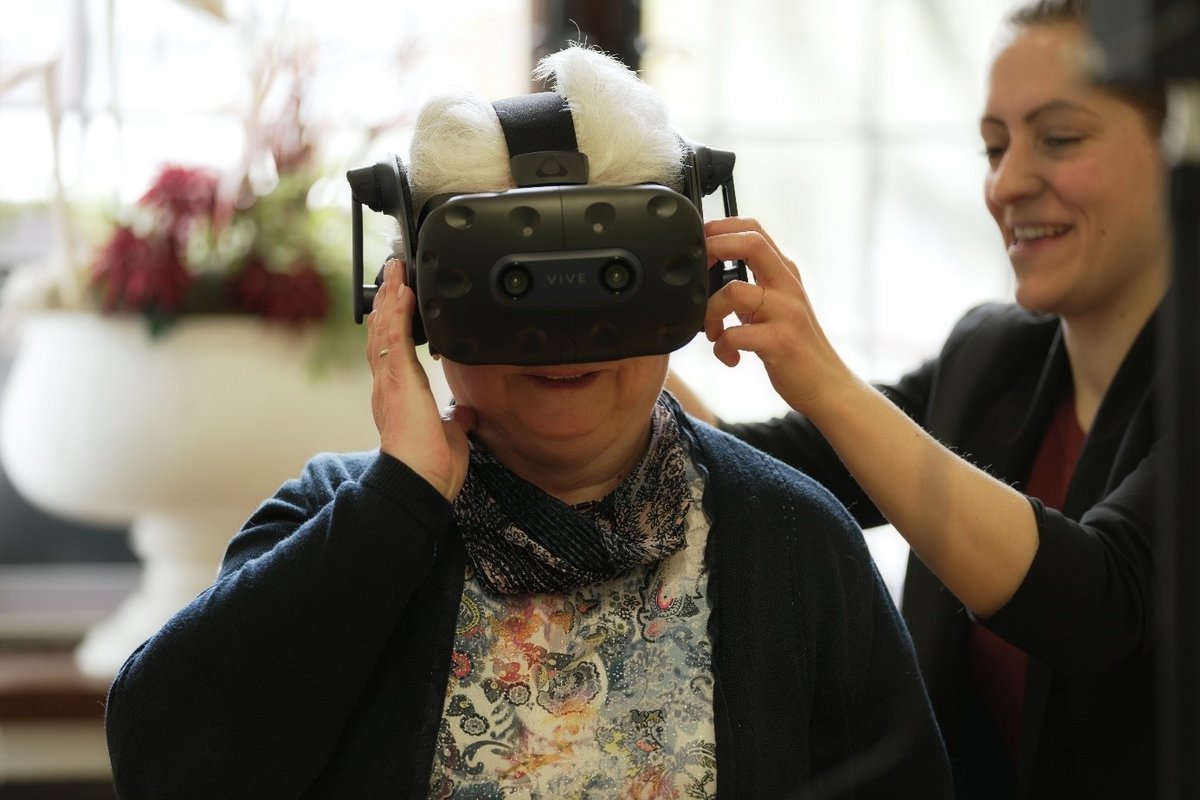People and energy - a study at the BTU examines the acceptance of energy infrastructures among the population
Although surveys show that a large majority of the population is in favor of climate protection, the implementation of the energy transition is often difficult in practice. For example, local resistance to the erection of wind turbines is often strong. The goal of the scientists at the Brandenburg University of Technology Cottbus-Senftenberg (BTU) in the Energy Economics (EECON) Lab of the Energy Innovation Center (EIZ) is to find out why people are opposed to wind turbines and how opponents can become supporters of the energy transition.
Among other things, the researchers in the EECON Lab are investigating energy-saving behavior and the acceptance of energy infrastructures. Respondents from Cottbus and the surrounding area from all population groups will be randomly selected from a pool of test persons. With the help of virtual reality (VR), the participants receive a tangible image of existing energy infrastructures, such as wind turbines or solar plants, as well as future infrastructures, such as electrolysers needed for hydrogen, through VR glasses.
"What is special about the studies of the EECON Lab is that we take into account all population groups, use virtual reality to represent energy infrastructures, and not only inquire about attitudes, but also investigate actual behavior regarding the acceptance of energy infrastructures and the consumption of energy," says Niklas Ziemann, a researcher at the EECON Lab.
The EECON Lab conducts four to five different studies per year. Each study has a new focus. Up to 250 participants are needed per study. A single survey takes about half an hour to an hour.
The EECON Lab is one of a total of six laboratories of the Energy Innovation Center at the BTU. With the participation of 14 BTU chairs and more than 40 other partners, researchers at the EIZ are working to understand the climate-neutral energy supply of the future and to facilitate the energy transition in Lusatia, which is expected to successfully phase out lignite. EECON Lab partners include the Fraunhofer Institute for Energy Infrastructures and Geothermal Energy IEG, 50 Hertz Transmission GmbH, the Fachagentur Windenergie an Land e.V. and LEAG. The first phase of the Energy Innovation Center, which is scheduled to run for a total of ten years, is currently underway. Within these ten years, the Energy Innovation Center will be funded with a total of up to 102 million euros. The funds come from the federal government's Structural Strengthening Act.
Contact
Energiewirtschaft
T +49 (0) 355 69-4161
christin.hoffmann(at)b-tu.de

